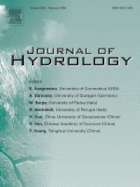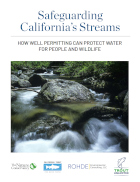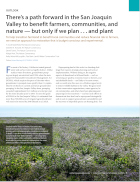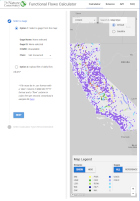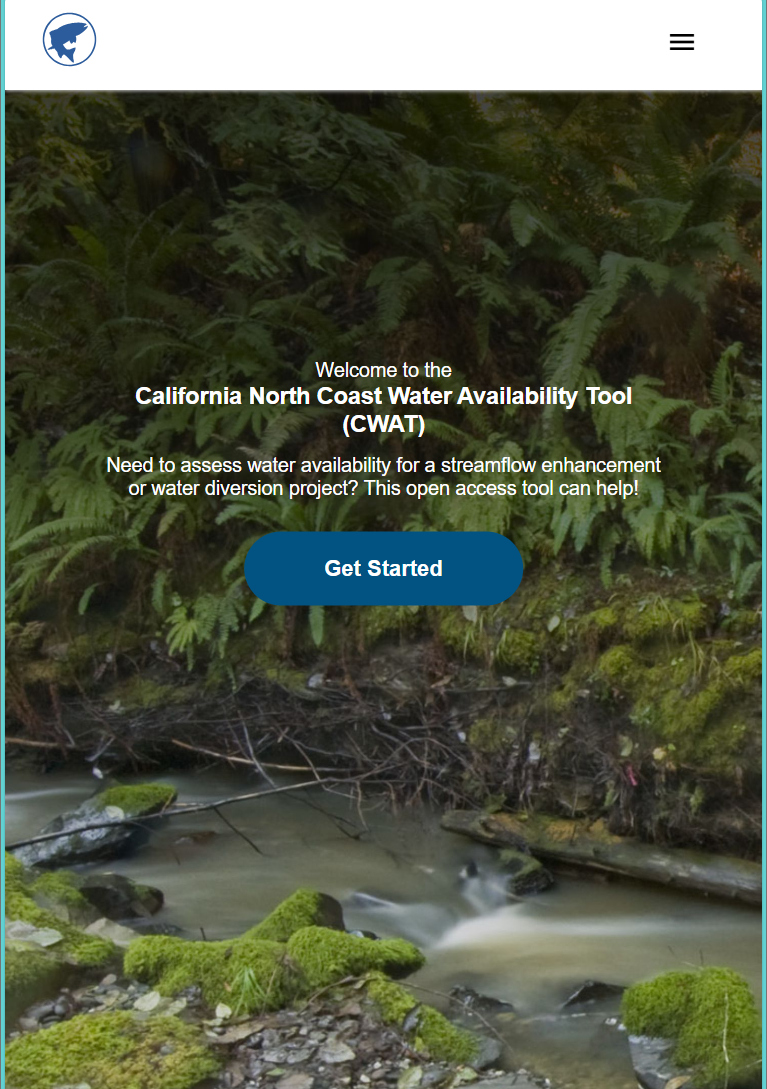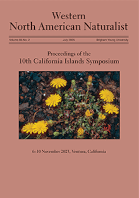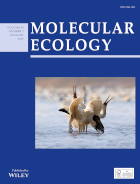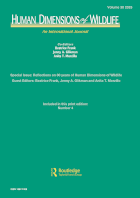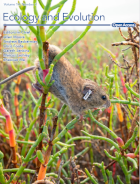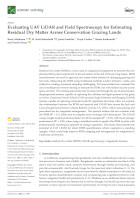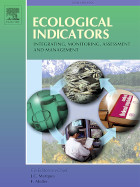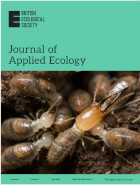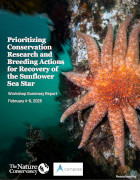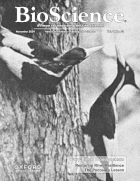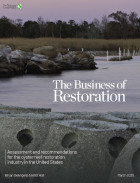Products
We identify issues and uncertainties that pose obstacles to conservation and then—in collaboration with internal and external colleagues—develop science products that help overcome those obstacles.
2026 | Freshwater | Technology | Science | Publications & Reports
Pairing OpenET remotely sensed evapotranspiration with streamflow data to assess the effectiveness of irrigation curtailment for aquatic conservation
J. Eli Asarian, Bronwen Stanford, Nicholas P. Murphy, Michael M. Pollock
Monitoring water conservation can be challenging in locations without adequate metering. Here the authors use satellite-derived estimates of evapotranspiration (ET) to assess watershed-wide responses…2026 | Freshwater | Science | Publications & Reports
Safeguarding California’s Streams: How Well Permitting Can Protect Water for People and Wildlife
Monty Schmitt (TNC), Nicholas Murphy, Matthew Clifford, Charlie Schneider, Melissa M. Rohde (TNC alum)
Groundwater management is changing across California. In 2018, a legal decision ruled that counties must address the potential negative impacts on public trust resources, particularly streamflow…2026 | Freshwater | Technology | Science | Publications & Reports
Lagged streamflow depletion due to pumping-induced stream drying: Incorporation into analytical streamflow depletion estimation methods
Sam Zipper, Ian Gambill, Monty Schmitt (TNC), Claire Kouba, Leland Scantlebury, Thomas Harter, Nicholas Murphy
At regional management scales, streamflow depletion due to groundwater pumping cannot be measured directly. Analytical depletion functions (ADFs) are a low-cost, low-complexity modeling approach to…2026 | Freshwater | Terrestrial | Marine | Science | Publications & Reports
Oren Pollak Memorial Research Fund - 2026 RFP
The Oren Pollak Memorial Research Fund was established in 2000 in memory of Dr. Oren Pollak, a leading grassland ecologist and restoration pioneer, as well as an ardent champion and mentor for…2025 | Freshwater | Terrestrial | Science | Publications & Reports
There’s a path forward in the San Joaquin Valley to benefit farmers, communities, and nature — but only if we plan . . . and plant
H. Scott Butterfield (TNC), Jeanette K. Howard (TNC), Daniel Toews (TNC), Abigail Hart (TNC), Kathy Wood-McLaughlin
To meet the goals of California's 2014 Sustainable Groundwater Management Act (SGMA), more than 500,000 acres of irrigated agricultural land will need to be retired. TNC and partners…2025 | Freshwater | Planning | Technology | Microsite
Functional Flows Calculator
Kirk Klausmeyer, Bronwen Stanford, Nathan Enerson, Steven Sonvisen, Falk Schuetzenmeister, and Jam Hamidi
To protect water for nature, we first need to understand current flow conditions in our rivers, and how that flow is altered from natural conditions. Under the California Environmental Flows Framework…2025 | Freshwater | Planning | Technology | Microsite
California North Coast Water Availability Tool
Jennifer Carah, Ben Kerr, Mia van Docto, Anders Farr, Kirk Klausmeyer, Steven Sonvisen, Siena Testa, and Jam Hamidi
Water is essential for California’s people, economy, and environment, yet water availability for people and nature is not well understood. This tool efficiently assesses water availability in…2025 | Terrestrial | Technology | Publications & Reports
Real-time island biosecurity surveillance: evaluating a wireless camera network for AI-assisted early detection of invasive mammals on Santa Cruz Island, CA
Lara J. Brenner, Nathaniel Rindlaub, Juliana Matos, Scott Meyler, Sue Pollock, Falk Schuetzenmeister, Nick D. Holmes
Invasive mammals like rats pose a major threat to island ecosystems and endemic species. This study tests a wireless camera network on Santa Cruz Island that uses AI to detect nonnative mammals in…2025 | Terrestrial | Technology | Science | Publications & Reports
Phylosymbiosis and Elevated Cancer Risk in Genetically Depauperate Channel Island Foxes
Alexandra L. DeCandia, Jasmine Lu, Emily E. Hamblen, Lara J. Brenner, Julie L. King, Calypso N. Gagorik, Juliann T. Schamel, Stacy S. Baker, Francesca J. Ferrara, Melissa Booker, Andrew Bridges, Cesar Carrasco, Bridgett M. vonHoldt, Klaus-Peter Koepfli, Jesús E. Maldonado
Isolated island species may be more susceptible to disease because of their lack of genetic diversity. Santa Catalina Island foxes have the highest rate of cancer ever measured in wildlife - over 50%…2025 | Terrestrial | Planning | Science | Publications & Reports
The wildlife attitude-acceptability framework’s potential to inform human dimensions of wildlife science and practice
Alexander L. Metcalf, Elizabeth Covelli Metcalf, Lara J. Brenner, Holly K. Nesbitt, Conor N. Phelan, Michael S. Lewis, Justin A. Gude
The long-term survival of large carnivores like wolves, grizzly bears and mountain lions depends not just on ecological factors like habitat, but also on social factors like human acceptance of their…2025 | Terrestrial | Planning | Publications & Reports
Conservation planning for climate change vulnerability across the islands of the Californias
Lara J. Brenner, Piper D. Wallingford, Nick D. Holmes, John J. Knapp, John M. Randall, Scott A. Morrison
Island ecosystems are especially vulnerable to climate change, yet planning for these impacts remains challenging due to a lack of available data. This paper reports on a collaborative workshop across…2025 | Terrestrial | Technology | Science | Publications & Reports
The gut microbiomes of Channel Island foxes and island spotted skunks exhibit fine-scale differentiation across host species and island populations
Samantha Pasciullo Boychuck, Lara J. Brenner, Calypso N. Gagorik, Juliann T. Schamel, Stacy Baker, Elton Tran, Bridgett M. vonHoldt, Klaus-Peter Koepfli, Jesús E. Maldonado, Alexandra L. DeCandia
On California’s Channel Islands, two rare carnivores—the island fox and island spotted skunk—have coexisted for millennia despite competing for similar resources. This study explores…2025 | Terrestrial | Technology | Science | Publications & Reports
Evaluating UAV LiDAR and Field Spectroscopy for Estimating Residual Dry Matter Across Conservation Grazing Lands
Bruce Markman, H. Scott Butterfield, Janet Franklin, Lloyd Coulter, Moses Katkowski, and Dan Sousa
Residual dry matter has been widely used to monitor grazing impacts across conservation grazing lands for more than 75 years, largely done with time-intensive, expensive, and hard-to-reproduce…2025 | Freshwater | Terrestrial | Planning | Science | Publications & Reports
High streamflow enhances population growth rates for Bank Swallows
Golet G.H., Kristen E. Dybala, Joeseph G. Silvera, Adam Henderson, Jennifer Isola, David H. Wright, Ron Melcer Jr., and Danika Tsao.
Lowland alluvial rivers are rich in biodiversity, yet many are highly degraded and no longer support robust natural communities. Over the past few decades, Bank Swallows, which depend upon these…2025 | Terrestrial | Planning | Science | Publications & Reports
The Value of Community Science Data for Conservation Decision-making
A.D. Binley, J.O. Hanson, O.J. Robinson, G.H. Golet, J.R. Bennett
Monitoring biodiversity is critical for informing conservation but can also deplete resources available for management actions if the time and money available are limited. Freely available…2025 | Marine | Technology | Science | Publications & Reports
Ship collision risk threatens whales across the world’s oceans
Nisi A, H Welch, S Brodie, C Liephardt, R Rhodes, E Hazen, JV Redfern, TA Branch, A S Barreto, J Calambokidis, T Clavelle, L Dares, A de Vos, S Gero, J A. Jackson, RD Kenney, D Kroodsma, R Leaper, DJ McCauley, SE Moore, E Ovsyanikova, S Panigada, CV Robinson, T White, JR Wilson, B Abrahms
Collisions between whales and ships are a leading cause of death for threatened whale species across the globe. In this paper, scientists identified high risk areas for whale-ship collisions by…2025 | Marine | Science | Publications & Reports
Captive Breeding for Disease Resistance in the Sunflower Sea Star (Pycnopodia helianthoides)
The Nature Conservancy
In 2013, sea star wasting disease led to the collapse of sunflower sea stars (Pycnopodia helianthoides) along the west coast of North America. Animals are now being grown in captivity for eventual…2025 | Terrestrial | Planning | Science | Publications & Reports
Is our climate fight killing the environment? A case for smart from the start planning
Michael J Clifford, Peter Gower, Tanya Anderson, Jaina Moan, Mickey Hazelwood, Sophie S Parker, Laurel Saito
Dramatic changes to the transportation and energy sectors are required to reduce greenhouse gas emissions and meet the goal of keeping global average temperatures from rising. The authors discuss how…2025 | Marine | Planning | Science | Publications & Reports
The Business of Restoration: Assessment and recommendations for the oyster reef restoration industry in the United States
Bryan DeAngelis, Elliot Hall
We must radically increase the pace, scale, and impact of restoration to recover the abundance, resilience, and benefits of coastal ecosystems. This project explored the current size of the…